What is a Narrative Designer? (Revised November 2019)
- Edwin McRae
Here's a short, sharp article about what a Narrative Designer does in the video games industry. For a more in-depth explanation, allow me to blatantly tout my book at you. ;-) It's also short, sharp, and best of all, CHEAP!
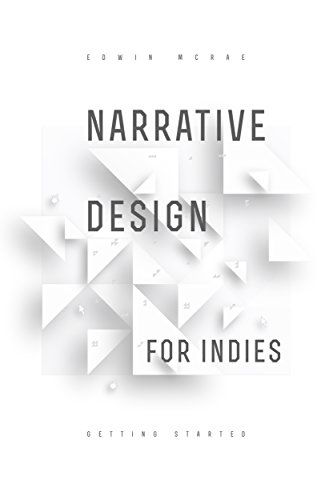 "An approachable, practical field guide for one of the trickiest and most rewarding aspects of game development, "Narrative Design for Indies: Getting Started" is packed with straightforward, actionable advice. Worth your time!" - Chris Bourassa, Creative Director of Darkest Dungeon.
"An approachable, practical field guide for one of the trickiest and most rewarding aspects of game development, "Narrative Design for Indies: Getting Started" is packed with straightforward, actionable advice. Worth your time!" - Chris Bourassa, Creative Director of Darkest Dungeon.
Click HERE to check it out on Amazon.
Ok, thanks for your patience there. Now...on with the article!
Narrative Designers work in the video game industry.

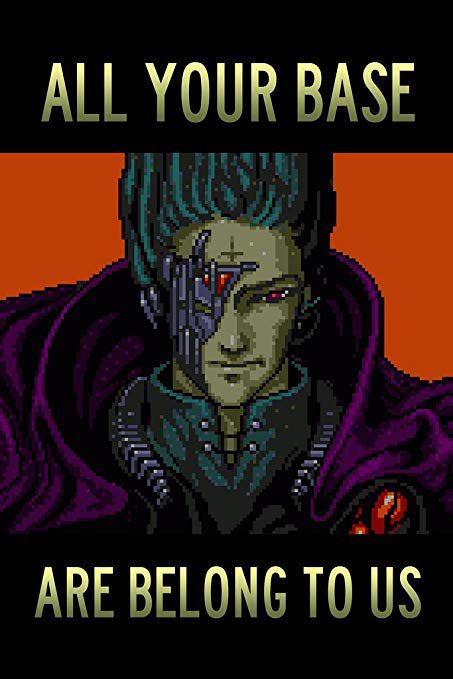
Thankfully, game narratives have come a long way since then!
So now let's state the not-so-obvious.
Narrative Designers work with Story so that Play has Meaning.
Note that I'm dodging around the word 'writer'. Yes, words are a Narrative Designer's only method of communication, if you don't count Googled 'inspiration images' and the odd diagram.
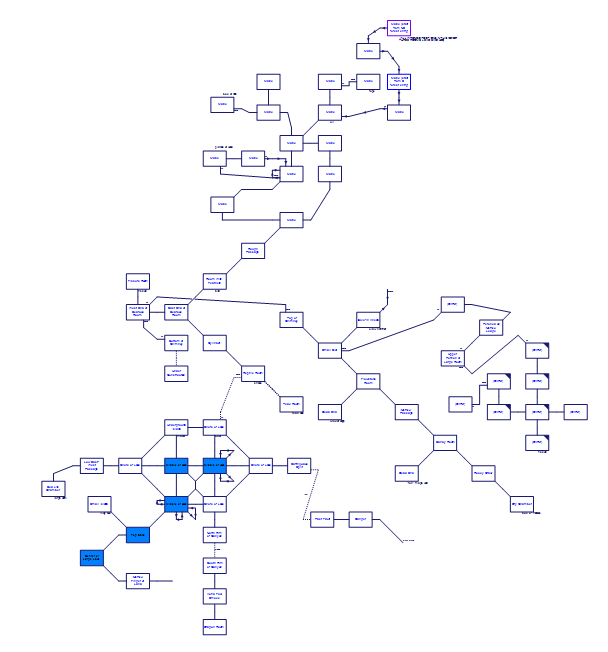
But 'writer' tends to get you tagged and dropped into a very cramped box in the video games industry. "Oh, so you write the dialogue and the in-game text?" That's the all-to-frequent assumption.
Yes, a Narrative Designer does those things. But we also do a whole lot more.
Narrative Design - Actions speak louder than Words
When designing a narrative for a game, we have to remember that Actions, not Words, are the strongest way to express a story.
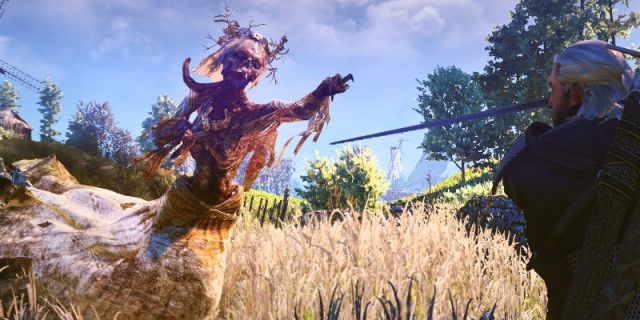
The player isn't there to read or listen.
The player is there to play.
So when it comes to a game, the Narrative Designer must think in Actions, first and foremost. Rather than telling the player a story, we are asking a player to take certain actions so that they will understand the story. The ND's job is to add the story context, the name of the monster, how they became a monster, why they need to be defeated, what the player will gain from the Win in story terms. Level Designers create Bosses and Loot Drops. Narrative Designers create Villains and Emotional Payoffs.
It's a difficult concept to describe...in words. Luckily, this short film by Sebas and Clim does a great job of showing how simple Actions have the power to express the most subtle and nuanced of Words. It's up to a narrative designer to describe the "story experience" the player will have, to convey it to the game designer through documents and diagrams so that mechanics and story can be integrated into a fun and fulfilling game.
Narrative Designers help to create Game Concepts
Once upon a time, 'writers' were brought in near the end of the game to script dialogue and supply in-game text. Yes, Story was a bit of an afterthought. A cherry on top.
Thankfully, this is changing. Narrative Designers are often there at the beginning of the process to ensure that Story and Gameplay walk hand in hand from premise to production. More and more, NDs are able to evolve game premises like 'kill a horde of monsters, collect a ton of loot and save the princess' into 'survive, grow as a character and experience a meaningful relationship'.
The character arcs of Booker and Elizabeth in Bioshock Infinite exemplify this, as does the relationship that forms between them.

We've come a long way since Donkey Kong. The question is...where to next? It's up to us NDs to work that out.
Narrative Designers build Worlds for Games
Before plot, before dialogue, before character even, there is World Building.
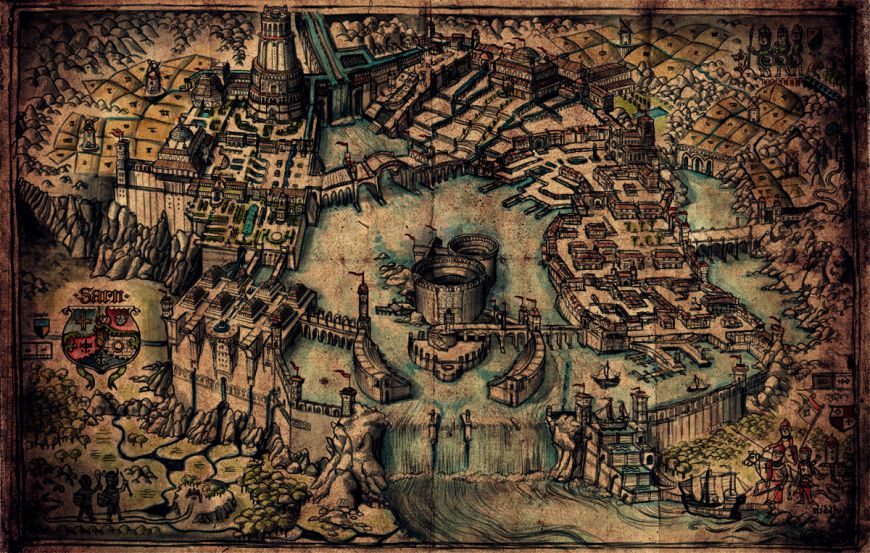

Where? When? Why is the world this way? Characters and creatures aren't set in an environment. Characters and creatures grow from an environment.
With sci-fi and fantasy worlds, everything needs to be decided. Climates. Cultures. Catastrophes...and a whole swag of other elements starting with 'C', and a few other letters to.
Even with strictly historical or contemporary environments, the 'Where', 'When' and 'Why' still need to be carefully selected from the contexts available.
A Narrative Designer's job is to answer the questions before the player can ask them.
1066, England
The Norman invasion or the Norwegian invasion?
Why did the Normans win?
Why did the Norwegians lose?
Why were there two seemingly unconnected armies invading within days of each other?
Why was anybody invading at all?
Narrative Designers are always thinking about player behaviour
As an ND, you have to try to predict all of the different actions a player might take in any given circumstance. That's the only way to make a game story feel truly responsive. For instance...
The "Eye for an Eye Quest' is considered completed once the player has killed the Cyclops and delivered its Eye to Agatha of Wytchery.
- What will Agatha say if the player returns while the Cyclops is still alive?
- What will she say if the player has killed the Cyclops but not collected the Eye?
- What will she say if the player kills the Cyclops before receiving the quest brief from Agatha?
- What will she say if the player kills the Cyclops and delivers the Eye before receiving the quest brief from Agatha?
That's a relatively common and simple RPG example. Imagine how much more complicated it could get if there were three different cyclopes, three different body parts on order, and a rival witch NPC who also wants those parts.
The narrative designer's job is to think through every possible permutations of an in-game situation and ensure that the story recognizes the player's choices.
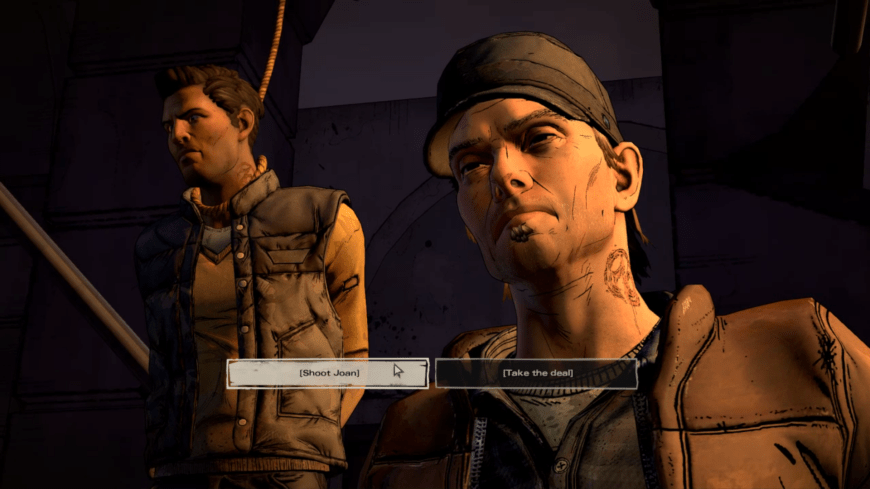
So that's a quick 'once over' of what a Narrative Designer does for a video game. No, we haven't drilled down into the nitty-gritty of character design, dialogue trees, story glyphs, flavour texts or the myriad of other narrative elements that a Narrative Designer wrangles during the course of a game's development. That stuff is all covered in Narrative Design for Indies: Getting Started.
Thanks for reading, and until we meet again, I'll leave you with my favourite quote.
"Gameplay is what we do. Story is why we do it."
Original version published 31 August 2015.
Revised version published 9 May 2018.
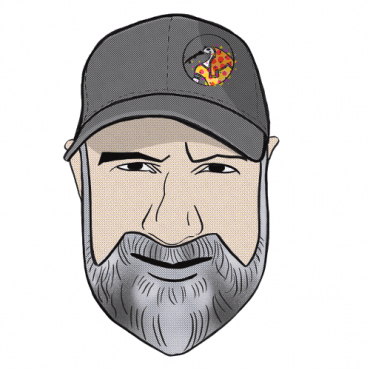
About Edwin McRae
Edwin is a narrative consultant and mentor for the games industry.
